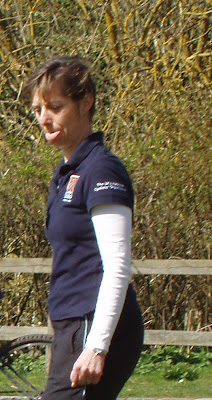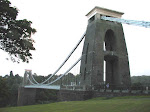A fascinating series of articles in The Times this week by Roger Boyes has made me think about the role of the state. Boyes’ articles report how he has been reliving the time he spent in communist Poland during the Cold War as a foreign correspondent when he was under regular surveillance by the authorities who suspected he was a spy. He met again his landlady who used to report on his movements, listen in to his meetings and, using her key, let the secret police into the flat to copy his correspondence. He has also seen some of the files recording all this information. Much was destroyed when Communism fell but enough remains to give an amazing insight to the intrusive state at the time. The Polish authorities eventually gave up on him but not before accusing him of ‘Nonchalantism’ – negative and nonchalant reporting of the Polish leadership.
At a time when our new coalition government is talking about reducing the size and impact of the state, both for idealistic and financial reasons, I’ve been thinking about our attitude to the state. The Boyes example is an extreme one although I believe we have more CCTV cameras per capita than anywhere else in the world. But we can trust our police and other authorities can’t we? However, we seem to have much lower respect for them than we used to and than other countries do. I spent three days in France last week. One day was with our French friends who live just outside Paris. Walking round their town I was struck by the civic buildings and developments – open areas, a market hall, a boules park and a magnificent Hotel de Ville. And I don’t detect any resentment about this level of spending.
I have similar thoughts when visiting Birmingham. The wonderful town hall and art gallery was built 125 years ago and echoes with civic pride.We seem to have lost this today. I’m sure any authority would have difficulty with such an investment these days. Back in France it’s easy to look at the extensive French high-speed rail network and compare it with our one line into St Pancras (I won’t mention HS2!) From the Eurostar train the sparsely-populated Northern France looks easier to plot a route through than Kent – much less the Chilterns! But I sense that the French government would be much more assertive at making things happen – and would get away with it.
Looking at tax levels is interesting, too: I remember seeing some statistics a while ago when the government was trying to change our tax base – I forget which way but it was by less than half a point when measured as a percentage of GDP. Currently, if you believe Wikipedia, our total tax revenue in the UK is 39% of GDP, France is 46% and the USA 28%. Are we just culturally different from France or just ahead of them? I see that binge drinking is taking hold in France with Apéro Géant parties planned on Facebook: there was one threatened last Sunday on the Champ-de-Mars (the park around the Eifel Tower). The authorities didn’t ban it, they just reminded people that drinking alcohol in the park is illegal! So perhaps they’ll catch up with us one day.
Back to Poland in the cold war: one interesting comment from Roger Boyes refers to a time when he was having difficulty with his new Polish father-in-law. He says “I had never admitted that to myself; hadn’t framed or spoken the thought out loud. Yet the secret police had truffled it out and analysed it with precision. At times their knowledge of me was deeper than my self-knowledge.”
Now, what about all these potholes?
Roger Boyes' articles are available here, here and here















